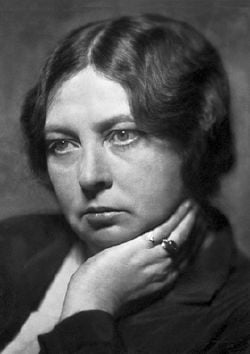Difference between revisions of "Info: Main Page" - New World Encyclopedia
From New World Encyclopedia
Svemir Brkic (talk | contribs) m |
Svemir Brkic (talk | contribs) |
||
| Line 1: | Line 1: | ||
<div class="row"> | <div class="row"> | ||
| + | <!--INFOLINKS_OFF--> | ||
<p style="text-align: left; margin:0 1em; font-size: 120%;">''New World Encyclopedia integrates facts with values.''</p> | <p style="text-align: left; margin:0 1em; font-size: 120%;">''New World Encyclopedia integrates facts with values.''</p> | ||
<p style="text-align: right; margin:0 1em; font-size: 120%;">''Written by online collaboration with certified experts.''</p> | <p style="text-align: right; margin:0 1em; font-size: 120%;">''Written by online collaboration with certified experts.''</p> | ||
| Line 6: | Line 7: | ||
__NOEDITSECTION__ | __NOEDITSECTION__ | ||
<div class="row"> | <div class="row"> | ||
| + | <!--INFOLINKS_ON--> | ||
<div class="large-3 columns"> | <div class="large-3 columns"> | ||
==Did you know?== | ==Did you know?== | ||
| Line 18: | Line 20: | ||
<div class="large-3 columns"> | <div class="large-3 columns"> | ||
==Recently Updated== | ==Recently Updated== | ||
| + | <!--INFOLINKS_OFF--> | ||
<recentchanges>10</recentchanges> | <recentchanges>10</recentchanges> | ||
</div> | </div> | ||
{{Public Info Links}} | {{Public Info Links}} | ||
Revision as of 12:34, 13 March 2016
New World Encyclopedia integrates facts with values.
Written by online collaboration with certified experts.
Did you know?
Richard Felton Outcault created the cartoon characters "The Yellow Kid" and "Buster Brown" (source: Richard Felton Outcault)
Featured Article: Sigrid Undset
Sigrid Undset (May 20, 1882 – June 10, 1949) was a Danish-born Norwegian novelist. Born in Denmark and raised in Norway, Undset had her first books of historical fiction published in 1907. She fled Norway for the United States in 1940 because of her opposition to Nazi Germany and the German invasion and occupation of Norway, but returned after World War II ended in 1945. Her best-known work is Kristin Lavransdatter. She was awarded the Nobel Prize for Literature in 1928.
Popular Article: Forgiveness
Forgiveness is the mental, emotional, and spiritual process of letting go of resentment, indignation, or anger against another person for a perceived offense, difference, or mistake. It can also mean ceasing to demand punishment or restitution for transgressions, real or imagined. Although forgiveness may be granted without any expectation of compensation, and without any response on the part of the offender, it is sometimes necessary for the offender to offer some form of acknowledgment, apology, or restitution; this can often open the way for the person who perceives to be wronged to feel empowered to forgive.

